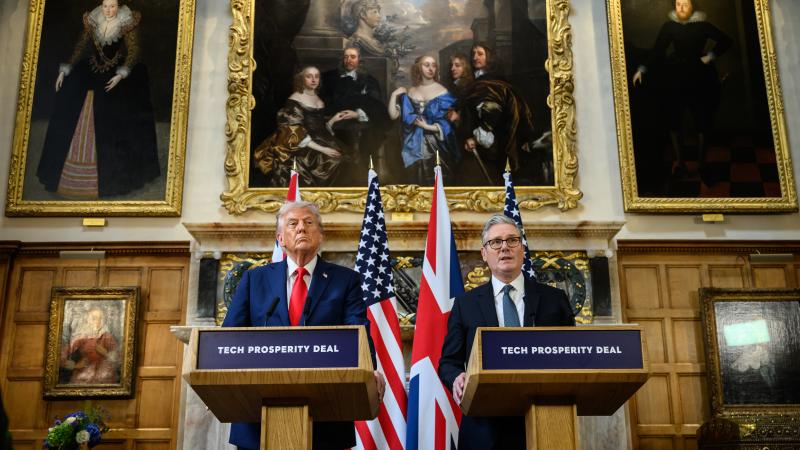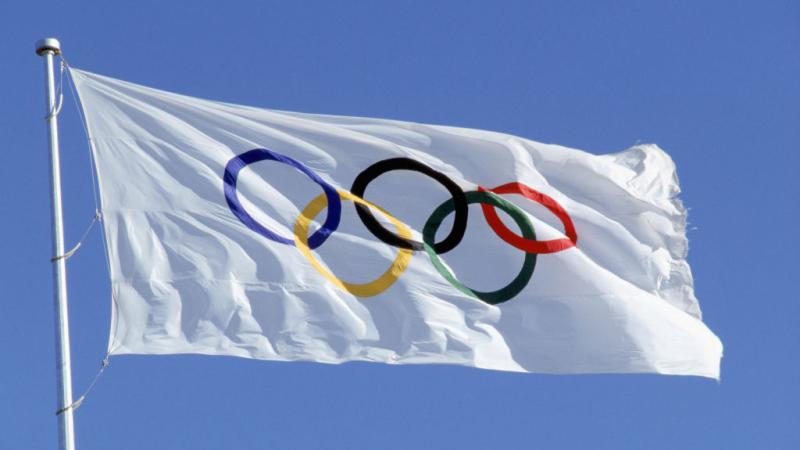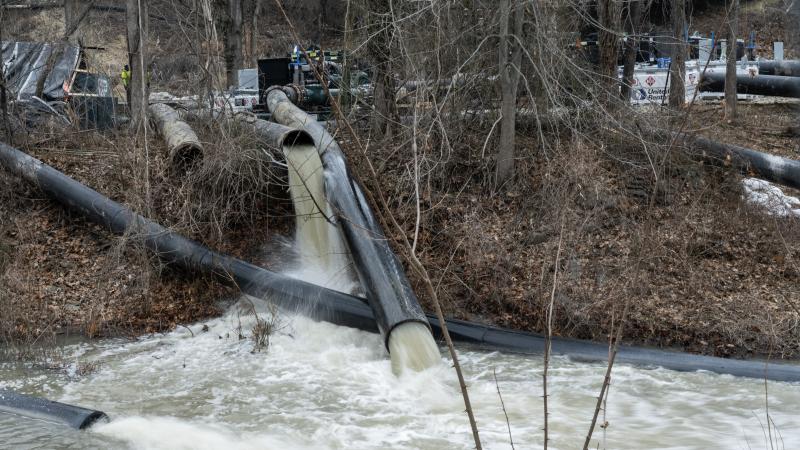Biden faces uphill challenge as he heads to Mideast to face upset allies
"The first 18 months have been disastrous," said one expert.
As President Biden begins his trip to the Middle East on Wednesday, the White House says he will seek to address the threat posed by Iran and deepen Israel's integration in the region, including through closer Arab-Israeli coordination.
Critics argue, however, that the Biden administration has pursued policies that appear to undermine the president's stated goals, raising concerns about how successful his trip will be.
Biden is heading to Israel, the West Bank, and then Saudi Arabia, where he will attend what White House National Security Advisor Jake Sullivan called a "major Middle Eastern summit" with several Arab leaders.
Some observers have noted that former President Trump visited the region on his first trip abroad, just four months into his presidency, while it took Biden 18 months to do so.
"The first 18 months have been disastrous," said Gabriel Noronha, a former special adviser for Iran in the State Department, referring to the Biden administration's policies toward U.S. allies Israel and the Arab states of the Persian Gulf. "They've basically completely ignored Israeli and Saudi interests."
According to a new poll by the Pew Research Center, Biden is less popular than Trump in Israel, and Israelis have less confidence in Biden's leadership.
As for the Gulf, Noronha described relations with the U.S. as having "deteriorated" during the Biden administration, adding his trip presents a chance to improve these relationships.
"The Biden administration has ... severely impaired America's relations with all of our friends in the Middle East, Israel and the oil-producing Gulf countries," former White House National Security Advisor John Bolton recently told the John Solomon Reports podcast. "They are appalled that the Biden administration wants to go back into the nuclear deal with Iran."
Perhaps the key area of disagreement between the administration and America's Arab and Israeli allies has been the 2015 Iran nuclear deal, which President Biden has made a priority to try to revive.
The deal places temporary curbs on Iran's nuclear program in exchange for lifting large-scale sanctions on Iran. Trump withdrew the U.S. from the deal in 2018.
"The administration's entire Iran policy is in complete opposition to what Israel and Saudi Arabia want," said Noronha, who added both countries want, but have not been allowed, a seat at the Iran nuclear negotiating table. "They want their security interests met."
Many observers have warned the deal being pushed by the administration would provide more extensive sanctions relief to Iran than the original and impose less lengthy restrictions on its nuclear program.
Both the State Department and the White House have repeatedly said a mutual return to compliance with the deal is the best way to prevent Iran from obtaining nuclear weapons.
"In the in the Arab world generally, you see and understand that the principal threat to peace and security in the Middle East is Iran," said Bolton.
Shared opposition to Iran has helped bring Israel and the Arabs together, according to experts, who argue a tough U.S. posture toward Iran is critical to fostering closer Arab-Israeli collaboration.
The U.S. and Israel are reportedly trying to lay the groundwork for an alliance with Arab states that would connect regional air defense systems to combat Iranian drone and missile attacks.
Israel also hopes it can work with the U.S. to expand the Abraham Accords to include Saudi Arabia. The accords were a series of historic peace agreements between Israel and Arab states brokered by the Trump administration.
Saudi Arabia won't join such an arrangement anytime soon, according to Noronha, who helped organize the first trilateral meeting between the U.S., Israel, and the United Arab Emirates. However, he noted, several smaller Arab states, such as Oman, Yemen, and Kuwait, will likely need the Saudis' blessing before normalizing relations with Israel themselves.
Analysts have described Biden's tepid follow-up to the Abraham Accords during his first several months in office as a missed opportunity. However, a State Department spokesperson told Just the News that the administration "strongly supports the Abraham Accords and normalization agreements between Israel and countries in the Arab and Muslim worlds."
"The Biden administration is deeply involved in the effort to deepen and wide the circle of peace with Israel," the spokesperson added. "We have also been clear that this is not a substitute for Israeli-Palestinian peace. Indeed, normalization should be leveraged to advance progress on the Israeli-Palestinian track."
Beyond Iran, another issue hurting U.S.-Gulf relations is Yemen, where Iranian-backed Houthi rebels have been fighting the Saudi-backed government and firing rockets and drones into Saudi territory.
Biden and Democrats in Congress have criticized Saudi Arabia (and to a lesser extent the UAE) for their conduct waging a war against the Houthis in Yemen, accusing them of human rights violations.
In large part due to opposition to the Yemen war and the killing of Saudi dissident Jamal Khashoggi, Biden promised during the 2020 presidential campaign to make Saudi Arabia into an international "pariah."
Last year, Biden removed the Houthis from the State Department's Foreign Terrorist Organization list, enraging the Saudis.
"The administration has criticized Saudi Arabia and the United Arab Emirates in particular for supplying weapons in the Yemen civil war, as if ignoring the fact that Iran supplied drones and missiles to the Houthis in Yemen in what keeps the civil war going," said Bolton.
In March, the Saudis and the Emirates infamously declined to take calls with Biden, highlighting just how far the relationship has fallen.
Still Biden's trip offers an opportunity to bring the Gulf states "back into the fold" so they don't draw closer to China, said Noronha.
The Saudis have reportedly considered accepting yuan, the Chinese currency, rather than dollars for some of its oil sales.
But despite other pressing issues, the 800-pound gorilla in the room on Biden's trip will be energy.
Indeed, with Biden under fire domestically for gas prices hitting historical highs last month, it's been widely reported that a key reason for Biden's trip is to ask Saudi Arabia, one of the world's largest oil exporters, to increase production to help lower costs globally.
"It wouldn't be cynical to see that as the real purpose of the trip," said Noronha. "But the Saudis would probably say no if Biden asked directly. They're right now in the sweet spot [of making money from oil]. It's not in their interest."
More likely, he added, the U.S. would need to use this trip improve relations with Saudi Arabia more broadly and then in a month or so follow up about oil production.
"They're not going to be going out of their way to be helpful to Biden," said Bolton. "This is in large part a mission designed to get the Gulf Arabs to pump more oil to bring the international price of oil down. And I don't think they're going to be accommodating without making it clear just how unhappy they are with Biden's overall regional policy."
The Biden administration recently explored the prospect of Iranian oil making up for the drop in global supply amid widespread boycotts of Russian energy for Russia's invasion of Ukraine.
Earlier this year, senior administrations officials, including Transportation Secretary Pete Buttigieg, declined to rule out purchasing Iranian oil, saying "all options are on the table."
The nuclear deal, if revived, would also provide Iran a windfall of cash by lifting sanctions on Iranian oil exports, a critical source of Iran's revenue.















